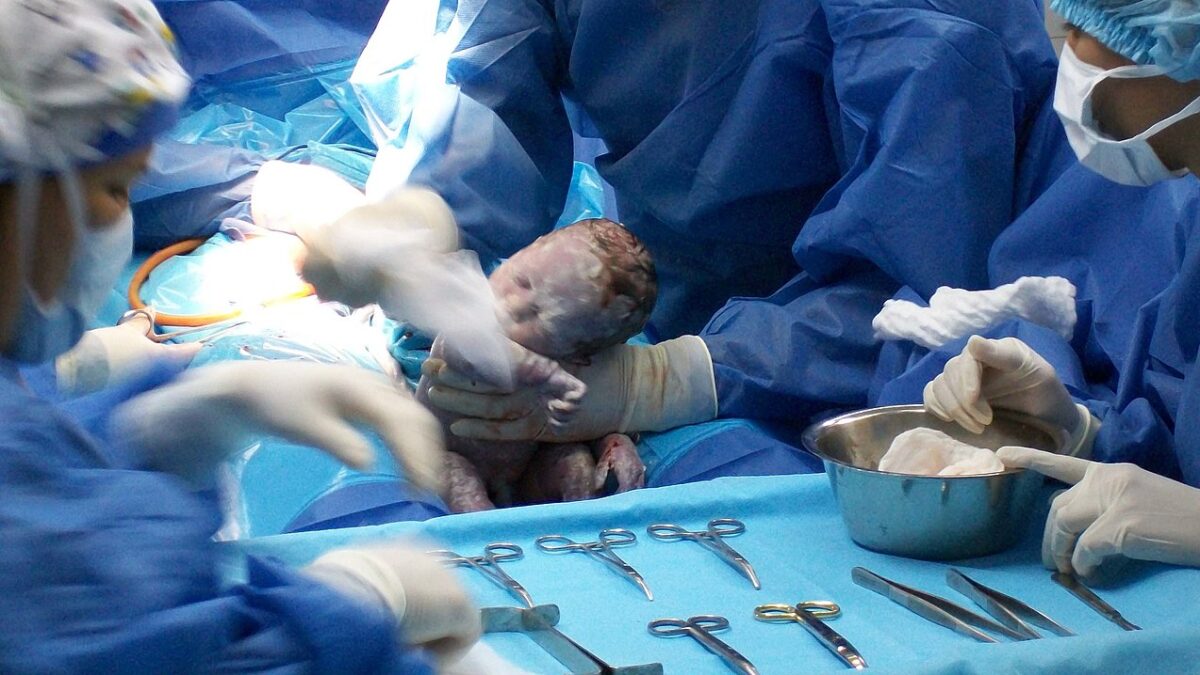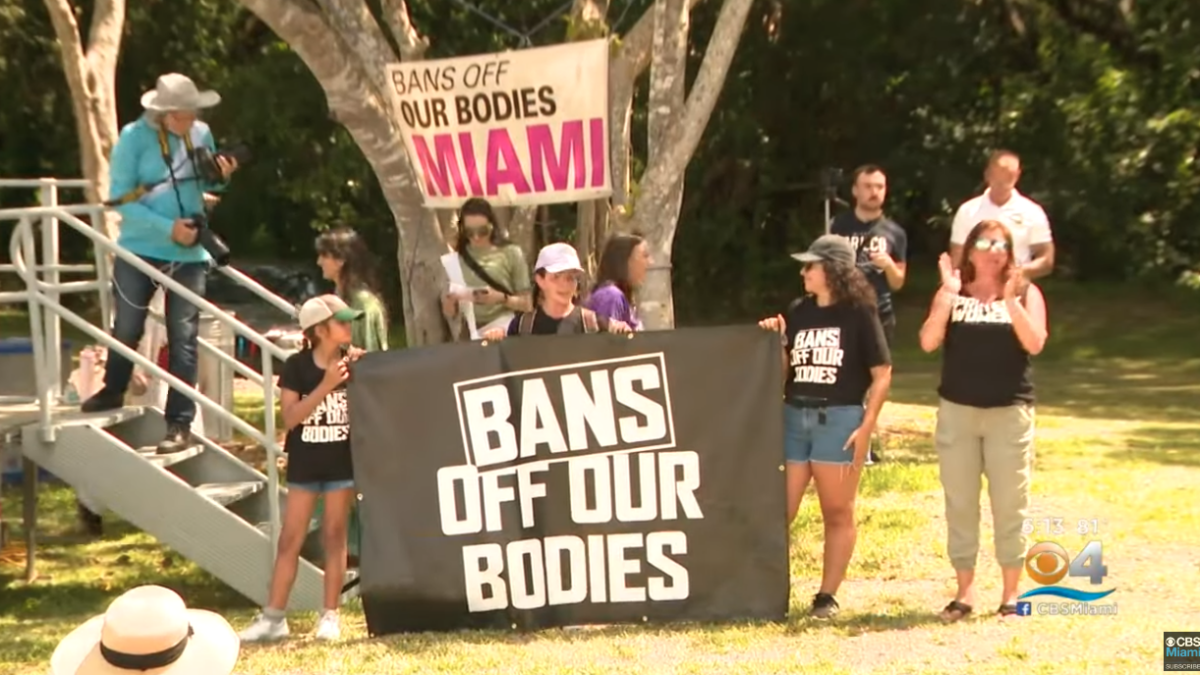Since the overturning of Roe v. Wade, misinformation on its consequences has run rampant online. Many women, including those who consider themselves pro-life, have read about scenarios that raise questions about what medical care will be available in a post-Roe world.
Pro-life physicians may also feel unsure of how best to respond to these concerns. I sat down with Dr. Christina Francis, CEO-elect of the American Association of Pro-life Obstetricians and Gynecologists (AAPLOG), to get some answers:
1 in 4 women has miscarried, and 1 in 50 pregnancies in the U.S. is ectopic. We are seeing many say that overturning Roe v. Wade affects a physician’s ability to care for women with these conditions. That would rightfully concern any woman. Is this true?
The short answer is, simply, no. There is a difference, legally and medically, between an abortion and treatment for miscarriage or ectopic pregnancy. Even Planned Parenthood recognized this difference, stating on its website that removing an ectopic pregnancy is not the same as an abortion (though they recently removed this statement in order to continue to spread false information). An elective abortion is any procedure performed or medication given with the intent to end a pregnancy specifically by ending the life of the preborn child. This is not our intent when we treat a woman for an ectopic pregnancy or for a miscarriage.
In the case of an ectopic pregnancy, which is life-threatening due to the risk of severe hemorrhage, we are intervening to save the mother’s life, but we do not intend the death of the embryo. In fact, the procedures typically used to treat an ectopic pregnancy are different than those used for elective abortions.
Some people confuse miscarriage with abortion for two reasons. The medical term for any pregnancy that ends prior to 20 weeks is “abortion.” However, in medicine, we use a modifier to indicate how that pregnancy ended. So, a miscarriage is a “spontaneous abortion,” meaning the preborn baby passed away on her own, without anyone causing her death. The term “induced abortion” is how we code procedures where someone (like an abortion provider) has caused the death of the preborn child through medication or procedure. This is what is being referred to when the general public discusses abortion, and this is what legislators are discussing when they discuss restricting abortion.
The second thing that I think confuses some people is that the surgical procedures that are used to perform first-trimester (D&C) and second-trimester (D&E) abortions are the same procedures that can be used to remove a preborn child who has already passed away in the case of a miscarriage. However, laws that restrict abortions do not ban procedures, they ban how those procedures are used.
Any doctor or physician that claims they cannot treat a woman experiencing a miscarriage or ectopic pregnancy or hesitates to do so is committing medical malpractice. They are putting women in extreme danger and should be held accountable for doing so.
How do you respond to claims about the need to have access to abortion to save the life of the mother? Have you ever needed to perform an abortion to save the life of a mother?
In 14 years of clinical practice, I have never needed to intentionally end the life of a preborn child in order to save the life of his or her mother. There are rare situations in which we need to prematurely deliver a baby due to life-threatening complications of pregnancy. If this occurs after the point at which the baby can survive apart from the mother (viability), we simply deliver the child and take care of both mom and baby.
Not only is this the ethical thing to do, and a fulfillment of our oath to do no harm, but it is also much faster than abortion and improves outcomes for the mother. Babies have survived as young as 21 and 22 weeks, as the age of viability continually changes thanks to medical science advances. If early delivery is needed prior to the point of viability, my duty as a physician is to save the life or lives that I can save without intentionally harming anyone else. This can be done in a way that respects the dignity of the preborn child and delivers him/her intact so Mom and Dad can hold their baby.
Not only is this what most patients desire, but it is also important because scientific evidence now indicates preborn children can feel pain as early as 12 weeks, meaning that babies whose lives are ended through dismemberment abortion experience excruciating pain during that process. There is comfort for parents to know they gave their child a chance at life and comfort for physicians to know they are always seeking to save them both, if possible.
What’s the best treatment for fatal fetal diagnosis? Meaning a child is diagnosed in the womb with a condition that will likely result in their death soon after they are born.
Tragically, every year, thousands of preborn children are diagnosed with medical conditions that will drastically limit their lifespan; many will die before or shortly after birth. When those diagnoses are made, many people, including physicians, assume that termination of the pregnancy through elective abortion is a compassionate option.
However, this line of thinking ignores both the humanity of that preborn child and the need for families to not only honor the life of their child but also have the opportunity to process their grief and feel supported through it. If that child were already born — if they were 12 years old, or 2 years old, or 2 months old — no physician would consider “terminating” them due to a diagnosis of a terminal illness. Instead, they would work against the odds to save that child, and, if death seems truly imminent, make them as comfortable as possible in the final stages of their life.
The most compassionate option for these children is perinatal palliative care, a type of hospice care, that offers support to the family throughout the pregnancy, delivery, and beyond. One study showed that 80 percent of patients offered the option of perinatal palliative care prefer it to termination and that parents who utilized this option had a smoother grieving process and better mental health outcomes in dealing with the death of their child.
Can you speak to the regulation of certain medications like misoprostol, which is used for both miscarriage management and in the abortion pill regimen?
Misoprostol is a drug that causes the pregnant uterus to contract and softens the cervix. It is the second drug in the two-drug medication abortion regimen (the first being mifepristone, a drug that’s intended to end the life of the child by blocking the action of progesterone, a crucial hormone in early pregnancy) — but it’s also used to help women complete miscarriages (where their baby has already passed), to induce labor at term in normal pregnancies, and also as a preventive agent for gastric ulcers.
State laws don’t outlaw the use of misoprostol, nor should they, even though the drug could be used in elective abortion, for the same reason that they don’t outlaw scalpels even though scalpels could be used to murder a patient. States do, however, have a vested interest in preventing this and other medications from being used to intentionally end the lives of preborn human beings.
We recently heard a tragic story of a young girl becoming pregnant as a result of rape. What is the pro-life medical treatment in this situation?
Being sexually violated is one of the most traumatic things a person can experience. Women and girls who have been through this tragic experience deserve the best health care, both physical and mental, that we can possibly provide. They deserve to be treated with methods that have been proven to actually improve their outcomes.
Many people assume that by getting rid of the preborn child, a potential reminder of the rape, the mother will be able to move past that trauma faster and easier. However, abortion is not and has never been a mental health treatment for rape. Mental health clinicians don’t do abortions. Mental health treatment for the trauma of rape depends on the level of clinical symptoms the survivor experiences and includes evidence-based treatments like trauma-focused cognitive behavioral therapy or psychodynamic therapy.
Ending the life of a preborn human being, regardless of how she was conceived, does not address the crime of her father and does not improve the primary victim’s mental health outcomes. One survey showed that 50-80 percent of women who conceived from rape chose to carry their child to term and that 80 percent of women who terminated their pregnancies regretted it.
The appropriate response to a traumatic pregnancy resulting from rape is compassion, active listening, motivational interviewing, and evidence-based therapeutic modalities. There is no evidence of a mental health benefit to abortion under any circumstance. Even the studies based on the Turnaway cohort, which are often quoted by abortion advocates to claim harm to women from being denied an abortion, show that by five years later, 96 percent of women were glad they did not have an abortion.
With Roe v. Wade overturned, states will now determine their own abortion law. How do you think states can or should best protect their citizens from the harms of abortion?
The beauty of Roe and Casey being overturned is that real discussions can now be had at a state level about what women and preborn children need. We now have the chance for our laws to reflect current medical science — not the science of 50 years ago. Since the Roe decision, huge advances have been made in perinatal medicine, allowing us to save premature babies a full six weeks earlier than we were able to in 1973, and to tackle a host of medical conditions that used to prove fatal to pregnant mothers and their children.
Abortion is a medical attempt to fix a social problem. It merely puts a band-aid on the problems that drive most women to choose abortion. Women deserve better than just a band-aid. They deserve real solutions and real support. I believe individual state and local governments are far better equipped to do this than the federal government.
Pro-life states should want to protect both pregnant women and preborn children. This means offering protections to preborn children by outlawing elective abortion — only allowing treatment of ectopic pregnancies or premature deliveries when the mother’s life is in danger. In addition, women should not be prosecuted for obtaining abortions — the vast majority of women report receiving minimal to no counseling on other options prior to their abortion, and nearly two-thirds felt pressured or coerced into their abortion decisions.
How can pro-life individuals and/or physicians help legislators right now?
Your representatives are meant to serve you by crafting policies that work best for you and their other constituents. Let them know what these policies should look like by making your voice heard. Let your representatives know the tragic pitfalls of abortion — from ending precious preborn lives to endangering women in a host of different ways, often leaving them with lifelong wounds.
If you are a pro-life physician, your perspective is invaluable. Not only do you have the training to offer a science-based defense of the pro-life position, but you also have the expertise to advise your representatives on what sound pro-life policies would look like. If your representatives are concerned about women’s ability to receive life-saving treatments for pregnancy complications with abortion restrictions, reassure them that the majority of OB-GYNs (76–93 percent) offer comprehensive pregnancy care.
If your legislators are confused about the role of a life-of-mother exception to abortion bans, explain why they are important for you to be able to offer women and children the care they deserve. Please reach out to AAPLOG and join us in this movement to restore medical care for all patients.









